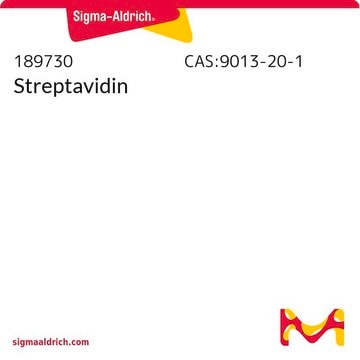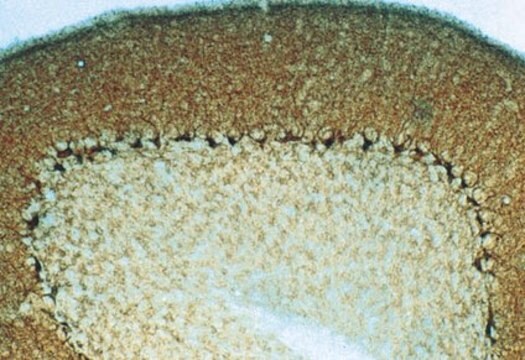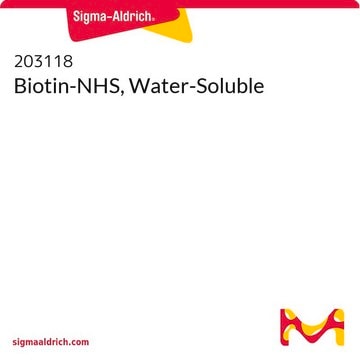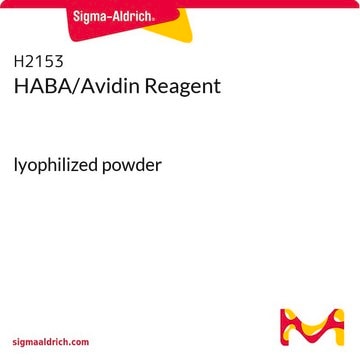BK101
ImmunoProbe™ Biotinylation Kit
Synonyme(s) :
Biotinylation Kits
About This Item
Produits recommandés
Température de stockage
2-8°C
Vous recherchez des produits similaires ? Visite Guide de comparaison des produits
Description générale
Application
Caractéristiques et avantages
- Complete protocols for labeling and assay
- BAC-Sulfo-NHS is completely water soluble
- No DMF or DMSO needed
- Biotinylation occurs near neutral pH and physiological ionic strength, avoiding harsh conditions that could damage sensitive proteins
- Fast separation of conjugate from reactants using gel filtration
- 2-5 molar ratio biotin to protein in conjugate (for antibodies)
1 mg protein per reaction (B-TAG)
10 mg protein per reaction (BK-101)
• Sufficient reagents for at least 5 labelings
Conditionnement
Remarque sur l'analyse
Conjugation is performed in four easy steps:
1. Reconstitute BAC-Sulfo-NHS with Phosphate Buffer (PB).
2. Add BAC-Sulfo-NHS to protein and allow to react for 30 minutes at room temperature.
3. Separate the conjugate from the reactants on gel filtration.
4. Assay the conjugate for biotin incorporation by the avidin-HABA assay (BK-101 only). Conjugate is ready to use.
Informations légales
Mention d'avertissement
Danger
Mentions de danger
Conseils de prudence
Classification des risques
Eye Irrit. 2 - Resp. Sens. 1 - Skin Irrit. 2 - STOT SE 3
Organes cibles
Respiratory system
Code de la classe de stockage
10 - Combustible liquids
Certificats d'analyse (COA)
Recherchez un Certificats d'analyse (COA) en saisissant le numéro de lot du produit. Les numéros de lot figurent sur l'étiquette du produit après les mots "Lot" ou "Batch".
Déjà en possession de ce produit ?
Retrouvez la documentation relative aux produits que vous avez récemment achetés dans la Bibliothèque de documents.
Les clients ont également consulté
Contenu apparenté
Access high-quality reagents for antibody workflows, including adjuvants, blocking reagents, conjugation kits, and more.
Access high-quality reagents for antibody workflows, including adjuvants, blocking reagents, conjugation kits, and more.
Access high-quality reagents for antibody workflows, including adjuvants, blocking reagents, conjugation kits, and more.
Access high-quality reagents for antibody workflows, including adjuvants, blocking reagents, conjugation kits, and more.
Notre équipe de scientifiques dispose d'une expérience dans tous les secteurs de la recherche, notamment en sciences de la vie, science des matériaux, synthèse chimique, chromatographie, analyse et dans de nombreux autres domaines..
Contacter notre Service technique














